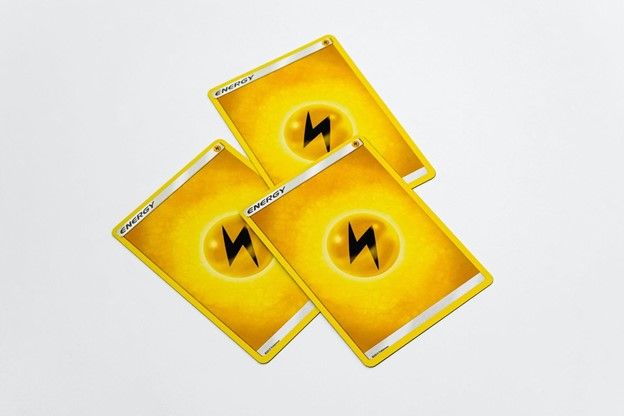The 9 Best Pokémon Card Price Guides, Lists, & Databases

Before you can sell your Pokémon cards online, you’ll want to determine how much you want to list them for. That’s when you’ll need a Pokémon card price guide; these guides list recent prices for popular cards so you can get a sense of the market by seeing and analyzing what sold, when, and for how much.
Some guides take the form of a Pokémon card value list, compiling going prices in one place and updating them periodically. Others work more like your own personal Pokémon card value finder, offering searchable databases of information that update either in real-time or very frequently. You don’t need to go by just one price guide; in fact it’s probably a good idea to cross check your information (and your instincts) using multiple resources. When you’re ready to get started, here are the nine best Pokémon card price guides you should check out.
Subscribe to get our best content in your inbox
By clicking “Submit” you agree to Dibbs
Privacy Policy and
consent to Dibbs using your contact data for newsletter purposes.

9 of The Best Pokémon Card Price Guides You Can Use
Collectible Communities
- CardMavin: Enter any card’s name (found at the top of your card) and number (found at the bottom of your card) in the Mavin Pokémon card value database to see results similar to your selection. You can use the database’s checkbox feature to eliminate irrelevant search results or just focus on the closest matches. Mavin lets you compare prices for different versions of the same card, and each listing indicates how long ago that card sold for that price so you can make sure you’re using the most recent prices possible.
- PriceCharting: The PriceCharting database lets you search for a specific card by name and number (just like CardMavin), or you can search by the set your Pokémon card (or cards) belong to. PriceCharting maintains a list of the most popular Pokémon sets, and also offers a marketplace that you can use to sell your cards once you’ve priced them to your satisfaction. In addition, PriceCharting has a cool feature that lets you upload data about all your cards to your account so you can track the value of your collection over time.
- PSA: The Professional Sports Authenticator is widely considered the authority in collectible card grading. The PSA’s Pokémon price guide is based on sale prices for collectibles that were officially graded by the organization though, so if you’re planning to sell raw (ungraded) cards or skip the grading process for any reason, the prices in the PSA guide are probably more of a pipe dream than a potential reality.
Online Marketplaces
- eBay: Although there are dedicated price guides you can and probably should use, most of the Pokémon forums recommend double checking those prices on eBay. Things can change quickly in the collectible trading card game, and if you’re using multiple price guides you’re likely to end up with a pricing range instead of something specific. Checking an active marketplace like eBay will ensure your information is up to date and help you list your Pokémon cards for the right price at that moment.
-
Social Media: Platforms like Reddit and Facebook are also great ways to double check your pricing information. You can poll the community and get advice by posting questions about pricing to popular Reddit forums, or check Facebook Groups and Facebook Marketplace for either community support or going rates for Pokémon cards in your area.
Pokémon-Specific Resources
- The PokeMasters: The combination of a detailed database and active price guide makes PokeMasters a very helpful resource. Search by card name or select the set you’re looking for, and the PokeMasters site will serve up an incredible wealth of information. See a series of prices (market, high, mid, and low rates), links to listings where the card is for sale, a roundup of the card’s features in the actual Pokémon playing card game, artist credits, and even details about the set the card belongs to.
-
Pokémon Prices: You can use Pokemon Prices to search for any individual Pokémon card the same way you do with most price guides, but the site also maintains a Top 100 list and browsable databases of both single cards and complete sets. If you want to observe pricing changes over time, you can use the site’s watchlist feature to bookmark the cards you want to track. And one of the coolest things about the Pokémon Prices database is the way it displays rising and falling card values side by side.
- TCGplayer: Widely considered a leading authority by the Pokémon community, TCGplayer lets you search by card or by set. The site combines data from brick and mortar stores, online stores, and individual sellers, so its online Pokémon card price guide is extremely thorough. The database shows multiple price points side by side: TCG Market Price reflects sales on the site itself, Buylist Market Price is an indicator of wholesale pricing, and Listed Median shows the aggregate from all listed prices (which is less accurate than final sale prices).
Once you’ve found the Pokémon card value list you want to use and decided on the price point you think is right, you’ll be ready to list your card for sale.

